Child Protection
Child Marriage:
Child marriage has been a persistent issue in the dumka area of jharkhand, deeply rooted in cultural traditions, poverty, and lack of education. In this region, early marriages are often seen as a way to secure a girl's future, alleviate the financial burden on families, and adhere to longstanding. Key factors contributing to child marriage:
Economic Hardship: Many families in dumka face severe economic challenges, making child marriage an appealing option to reduce household expenses
Cultural Norms: Deeply ingrained cultural practices and beliefs perpetuate the idea that marrying girls off at a young age is a social obligation.
Lack Of Education: Limited access to education and awareness among girls and their families further exacerbates the problem, as many are unaware of the legal and health implications of early marriage.
The ayo-aidari trust has launched an initiative to challenge deep-rooted cultural practices that perpetuate gender-based discrimination, including child marriage, by targeting key influencers within the community to shift mindsets on these issues. Similarly, in jharkhand, india, life skills training has been instrumental in empowering adolescents, particularly in the fight against child marriage, reaching a significant number of young girls and boys and equipping them with the knowledge and confidence to make informed decisions about their lives.
Social Pressure: Communities often exert pressure on families to marry off their daughters early to avoid the stigma associated with late marriages.

Impact Of Child Marriage:
health risks: early marriage leads to early pregnancies, which pose significant health risks for young girls, including raatednai ann incant madtality
educational disruption: child marriage often forces girls to drop out of school, limiting their opportunities for personal and economic development.
cycle of poverty: the practice perpetuates a cycle of poverty, as uneducated and young mothers are less likely to have the means to support their families or access opportunities for economic advancement.
Key Achievements:
empowerment of girls: 200 girls aged 12- 21 years received life skills training, enabling them to understand the challenges of adolescence and make positive life choices. Notably, 7 girls successfully resisted pressure to enter child marriages, safeguarding their futures.
re-engagement in education: motivated by the training, 45 girls returned to school, resuming their education and pursuing brighter futures.
behavioral shifts: the training also encouraged both girls and boys to reject harmful practices, including the consumption of country liquor and adherence to superstitions.
support from boys: 56 boys were trained in life skills, fostering their ability to make constructive decisions. These boys have actively supported efforts to prevent child marriage, demonstrating commitment to gender equality and the protection of their peers.
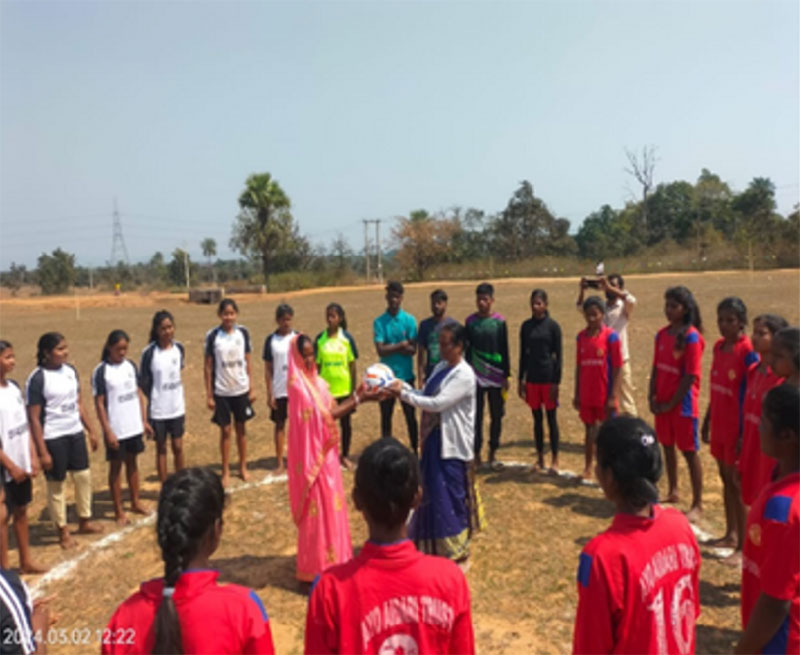
The annual sports meet, featuring a football match for adolescent girls from 20 villages, was an invaluable opportunity for developing key life skills. With 300 participants working together, the event fostered teamwork and collaboration, teaching the importance of collective effort. Girls who took on leadership roles gained experience in responsibility and management, while the challenges of competition built their resilience and perseverance. Setting goals for advancing to state and national levels reinforced their ability to set and achieve objectives. The experience also enhanced their time management skills as they balanced practice and other activities, and improved their communication abilities through on-field interactions. Overall, the event not only provided a platform for athletic development but also contributed significantly to the girls personal growth and life skills.
Opportunities created for children to unfold their sports talent through provisioning of sports material in 50 schools in ramgarh block.
Summer camps for school students organized at community level to provide opportunity to children to express their talent. 400 school children participated in summer camps.
Capacity Building:
Adolescent Girls (14-18 Years): The program emphasized communication skills, creative and critical thinking, reproductive health, and child protection mechanisms. This holistic approach aimed to enhance the decision- making capacities of young girls, empowering them to resist child marriage and advocate for their rights. Leadership training:
Adolescent Girls: 100 adolescent girls from kishori mandals received leadership training to become change agents in preventing child marriage and advocating for their rights. The kishori mandal network has actively demanded the regular supply of sanitary napkins from the block administration.
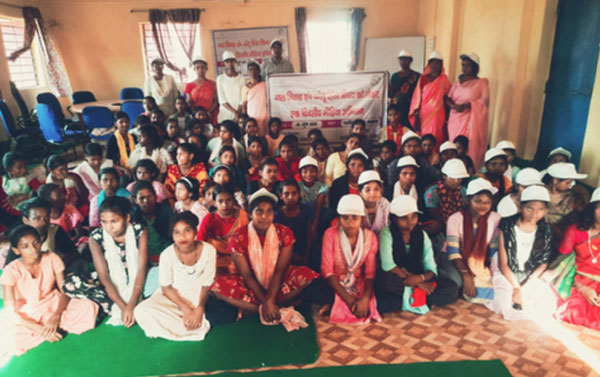
Advocacy And Justice: Trained leaders have begun raising their voices against child marriage and domestic violence in the village's traditional judiciary system, leading to the resolution of 11 cases.
Digital Literacy: Kishori mandal leaders, trained in digital literacy, are helping villagers fill out forms for various government social security schemes with guidance from ayo ayodari trust. As a result, 452 women have accessed the pradhan mantri kisan samman nidhi yojana, receiving ₹6,000 per farmer annually.
Health And Education Access: 555 adolescent girls have accessed sanitary napkins through the national health mission.
71 adolescent girls received financial support of ₹5,000 Per Year For Education Under The Savitribai Phule Yojana.
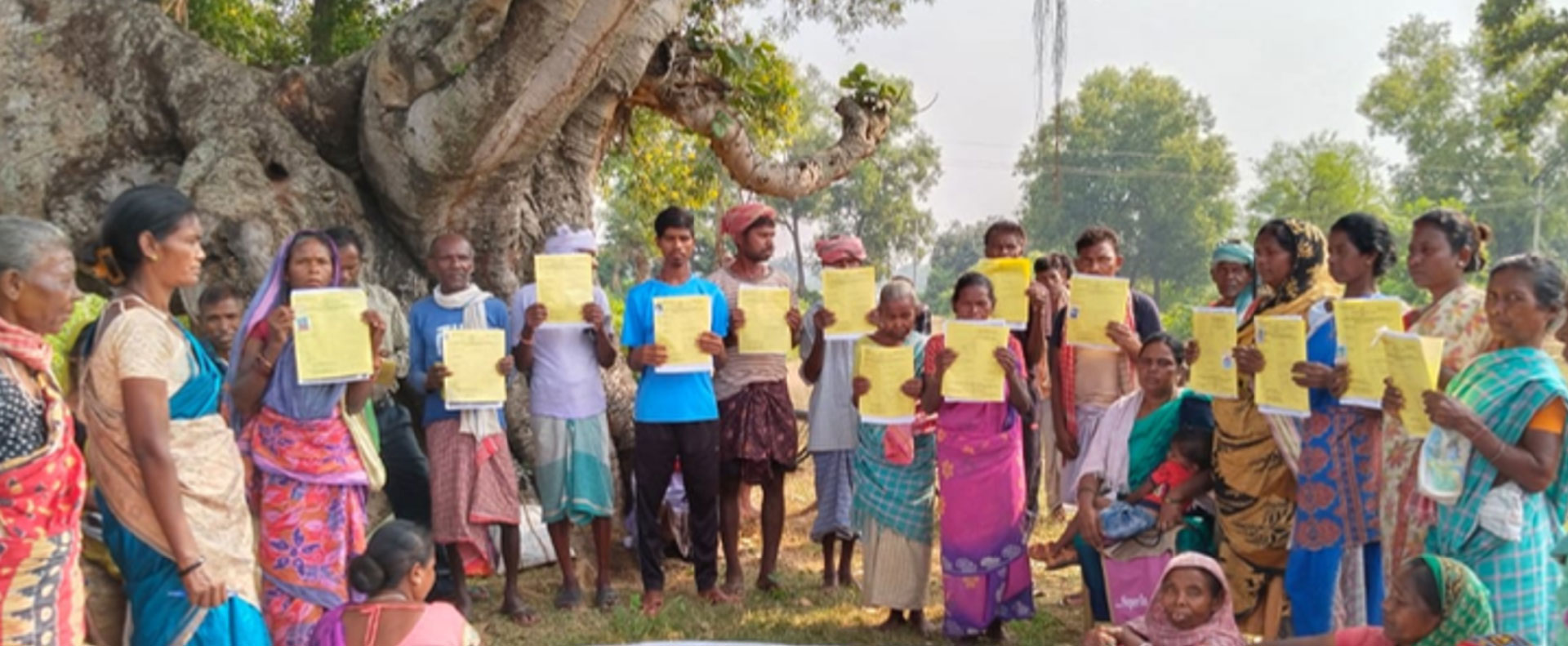
Community Awareness Campaigns:
Domestic Violence And Gender Discrimination: Awareness campaigns have been conducted in 20 villages to sensitize the community about gender- based discrimination. A total of 925 people (251 males and 674 females) participated, with parents increasingly encouraging and supporting their daughters' higher education.
Religious Leaders' Sensitization: 40 religious leaders have been sensitized about the prevention of child marriage. Now, priests verify age proof before blessing marriages to avoid penalties under the law.
Media Campaign: Media professionals are being sensitized to create public awareness on preventing child marriage and domestic violence.
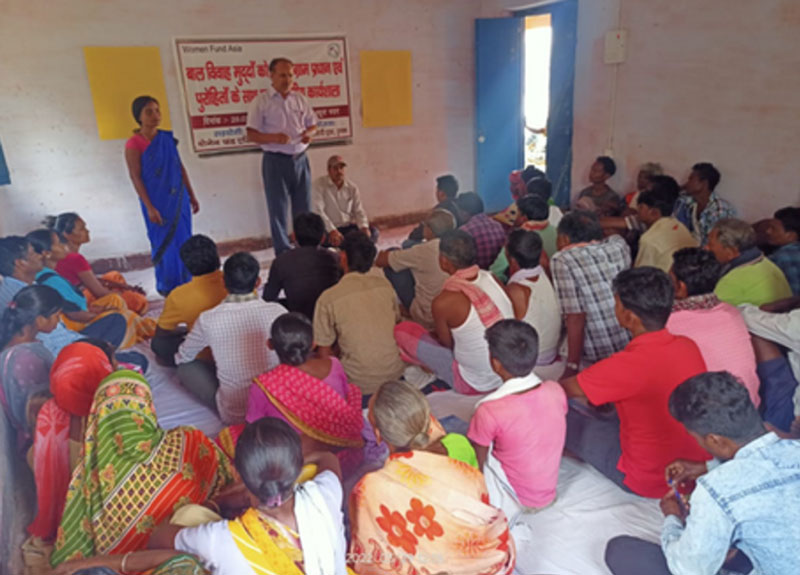
Leadership Recognition: 24 individuals, including gram pradhans, priests, kishori mandal members, and pri members, were felicitated for their significant contributions to preventing child marriage and promoting the development of girls and women.
Community Initiatives And Legal Training:
Tribal Leaders: 20 village tribal leaders have endorsed a resolution imposing a ₴10,000 penalty at the community level to prevent child marriages, leading to the complete cessation of child marriages in these villages. The jana jati adhikar manch maintains a marriage register to track the age of couples.
Village-level Child Protection And School Management Committees: 90 members received training on the roles and responsibilities of these committees in preventing child marriage and domestic violence. School management committee members are closely monitoring school dropout rates and helping parents re- enroll their children.
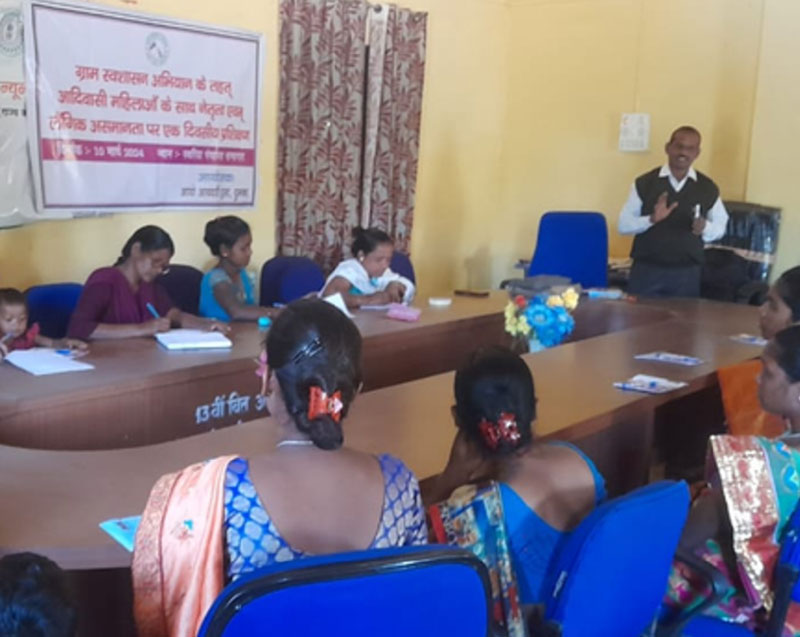
Training And Sensitization Workshops:
Village Leaders: 50 village pradhans and religious leaders were sensitized about laws and protection mechanisms related to child marriage. They are now diligently verifying the age proof of couples before blessing any marriage.
Gender-based Violence And Child Marriage Campaign: Meetings in 30 villages aimed to sensitize the public about gender-based violence and child marriage. Short audiovisual stories were played to illustrate how these practices hinder women's development.
Iec Material Development: Posters in local tribal languages on child marriage and domestic violence prevention, as per the country's laws, have been developed and displayed in public places to raise awareness.
Village Judicial Committees: 60 traditional village leaders who serve on village judicial committees were sensitized about the legal provisions related to child marriage and domestic violence, and their role in ensuring the protection of women and children at the village level.
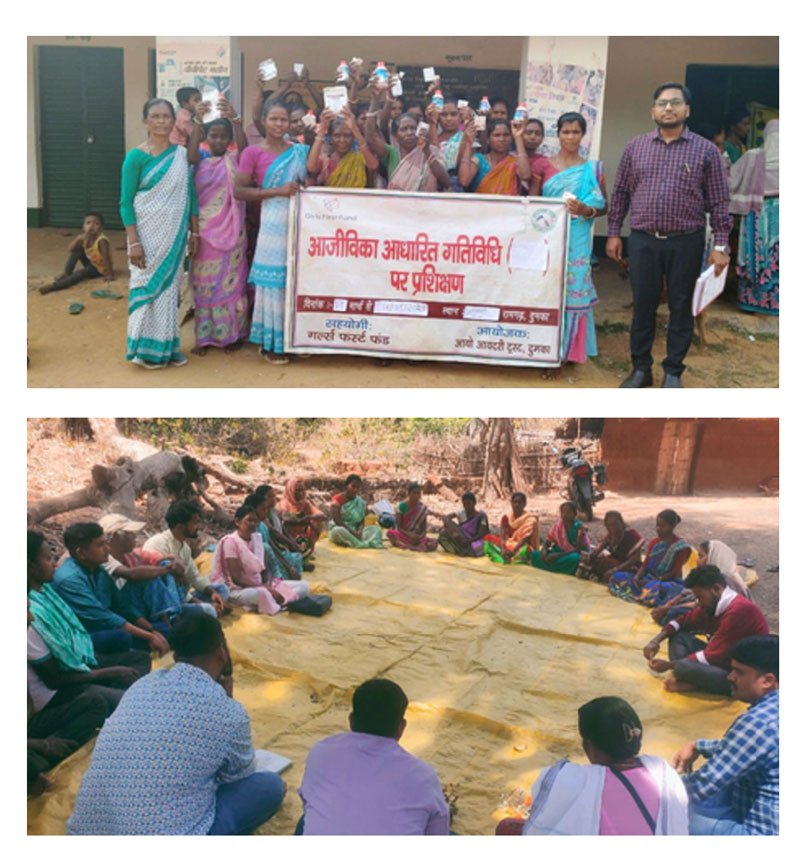
Duty Bearers' Training: A one-day training session for 60 duty bearers, including police officers, block development officers, child development officers, block-level icds supervisors, child welfare committee members, health officers, and sarpanches, covered the provisions of the child marriage prohibition act and the protection of women from domestic violence act. The session also discussed the roles of various officials and the services available for women and girls.
Interface Meetings: Two meetings were held between police and judicial representatives and community leaders. Police and law officers shared information about legal protections for women and children and assured women that they would provide justice to victims, encouraging them to file cases.
